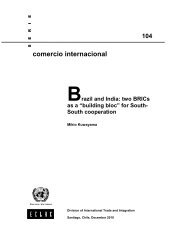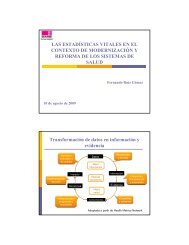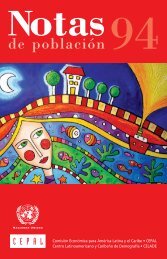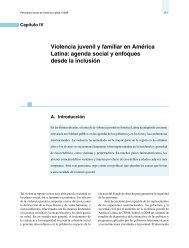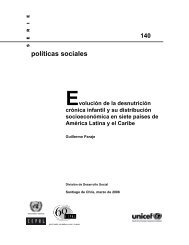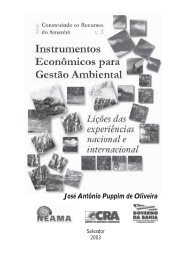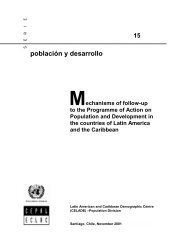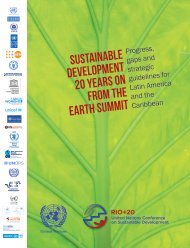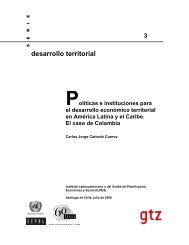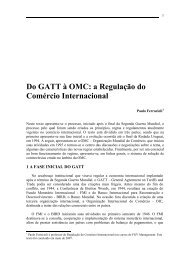Fact Sheet International Day in Support of Victims of Torture
Fact Sheet International Day in Support of Victims of Torture
Fact Sheet International Day in Support of Victims of Torture
Create successful ePaper yourself
Turn your PDF publications into a flip-book with our unique Google optimized e-Paper software.
<strong>Fact</strong> <strong>Sheet</strong><br />
INTERNATIONAL DAY IN SUPPORT OF VICTIMS OF TORTURE<br />
26 JUNE 2005<br />
"The <strong>International</strong> <strong>Day</strong> <strong>in</strong> <strong>Support</strong> <strong>of</strong> <strong>Victims</strong> <strong>of</strong> <strong>Torture</strong> is an occasion to reaffirm our commitment to<br />
eradicate torture and cruel, <strong>in</strong>human or degrad<strong>in</strong>g treatment or punishment, <strong>in</strong> whatever guise or manifestation<br />
they occur", says UN Secretary-General K<strong>of</strong>i Annan <strong>in</strong> his message for this year’s observance <strong>of</strong> the<br />
<strong>International</strong> <strong>Day</strong> <strong>in</strong> <strong>Support</strong> <strong>of</strong> <strong>Victims</strong> <strong>of</strong> <strong>Torture</strong>. "It is an occasion to pause and remember torture victims<br />
who have not survived, to listen to the stories <strong>of</strong> those who have, and to support their quest for justice for<br />
torture victims and their families - <strong>in</strong>clud<strong>in</strong>g by support<strong>in</strong>g the United Nations Voluntary Fund for <strong>Victims</strong> <strong>of</strong><br />
<strong>Torture</strong>."<br />
On 26 June, the <strong>in</strong>ternational community observes a special day to focus on help<strong>in</strong>g torture victims and<br />
end<strong>in</strong>g torture -- the <strong>International</strong> <strong>Day</strong> <strong>in</strong> <strong>Support</strong> <strong>of</strong> <strong>Victims</strong> <strong>of</strong> <strong>Torture</strong>. The United Nations General<br />
Assembly proclaimed the <strong>International</strong> <strong>Day</strong> <strong>in</strong> its resolution 52/149 <strong>of</strong> 12 December 1997, with the aim <strong>of</strong><br />
elim<strong>in</strong>at<strong>in</strong>g torture and ensur<strong>in</strong>g the application <strong>of</strong> the Convention aga<strong>in</strong>st <strong>Torture</strong> and Other Cruel, Inhuman<br />
or Degrad<strong>in</strong>g Treatment or Punishment.<br />
Each year, the Secretary-General issues a message on the <strong>International</strong> <strong>Day</strong> <strong>in</strong> <strong>Support</strong> <strong>of</strong> <strong>Victims</strong> <strong>of</strong> <strong>Torture</strong>.<br />
The full text <strong>of</strong> this year's message is available on www.un.org/apps/press/latest/asp.<br />
<strong>Torture</strong> is one <strong>of</strong> the most pr<strong>of</strong>ound human rights abuses, tak<strong>in</strong>g a terrible toll on millions <strong>of</strong> <strong>in</strong>dividuals and<br />
their families. Rape, blows to the soles <strong>of</strong> the feet, suffocation <strong>in</strong> water, burns, electric shocks, sleep<br />
deprivation, shak<strong>in</strong>g and beat<strong>in</strong>g are commonly used by torturers to break down an <strong>in</strong>dividual's personality.<br />
As terrible as the physical wounds are, the psychological and emotional scars are usually the most devastat<strong>in</strong>g<br />
and the most difficult to repair. Many torture survivors suffer recurr<strong>in</strong>g nightmares and flashbacks. They<br />
withdraw from family, school and work and feel a loss <strong>of</strong> trust.<br />
Ms. Louise Arbour, the UN High Commissioner for Human Rights, recently stated: "There are no<br />
circumstances, none, <strong>in</strong> which torture is ever permitted. Not <strong>in</strong> states <strong>of</strong> emergency, not <strong>in</strong> war. The<br />
<strong>in</strong>ternational human rights <strong>in</strong>struments provide for that. What more is there? How many guidel<strong>in</strong>es do we<br />
need? Let's go and enforce it."<br />
UN efforts to elim<strong>in</strong>ate torture<br />
S<strong>in</strong>ce its creation, the United Nations has condemned torture and worked towards its eradication. The<br />
Universal Declaration <strong>of</strong> Human Rights, <strong>in</strong> its Article 5, proclaims that "no one shall be subjected to torture or<br />
to cruel, <strong>in</strong>human or degrad<strong>in</strong>g treatment or punishment". Today, the fight aga<strong>in</strong>st torture is proceed<strong>in</strong>g on<br />
many fronts. Adopted by the UN General Assembly <strong>in</strong> 1984, the Convention aga<strong>in</strong>st <strong>Torture</strong> and Other<br />
Cruel, Inhuman or Degrad<strong>in</strong>g Treatment or Punishment obliges States to make torture a crime and to<br />
prosecute and punish those guilty <strong>of</strong> it. It notes explicitly that neither higher orders nor exceptional<br />
circumstances can justify torture.<br />
As <strong>of</strong> 27 April 2005, 139 States have ratified the Convention. These States parties are required to report to<br />
the UN Committee aga<strong>in</strong>st <strong>Torture</strong>, a human rights treaty body set up <strong>in</strong> 1987 to monitor compliance with the<br />
Convention and to assist States parties <strong>in</strong> implement<strong>in</strong>g its provisions. For further <strong>in</strong>formation, please visit<br />
www.ohchr.org/english/law/cat.htm.
2<br />
In 2002, the General Assembly adopted the Optional Protocol to the Convention aga<strong>in</strong>st <strong>Torture</strong> and Other<br />
Cruel, Inhuman or Degrad<strong>in</strong>g Treatment or Punishment, which when it enters <strong>in</strong>to force, will allow visits by<br />
<strong>in</strong>dependent <strong>in</strong>ternational and national bodies to places where persons are deprived <strong>of</strong> liberty. As <strong>of</strong> 27 April<br />
2005, eight States have ratified the Optional Protocol (20 ratifications are necessary for the Protocol to enter<br />
<strong>in</strong>to force). Further <strong>in</strong>formation is available on www.ohchr.org/english/law/cat/ccpr-one.htm.<br />
The Rome Statute <strong>of</strong> the <strong>International</strong> Crim<strong>in</strong>al Court def<strong>in</strong>es torture as a crime aga<strong>in</strong>st humanity "when it is<br />
committed as part <strong>of</strong> a widespread or systematic attack directed aga<strong>in</strong>st any civilian population, with<br />
knowledge <strong>of</strong> the attack", and it def<strong>in</strong>es torture as a war crime when it is it is committed "as part <strong>of</strong> a plan or<br />
policy or as part <strong>of</strong> a large-scale commission <strong>of</strong> such crimes".<br />
Education is another pillar <strong>of</strong> the campaign to eradicate torture. United Nations technical assistance<br />
programmes help countries to establish national <strong>in</strong>frastructures for the protection and promotion <strong>of</strong> human<br />
rights, and to tra<strong>in</strong> public <strong>of</strong>ficials -- such as police forces and judicial personnel -- with responsibility for the<br />
realization <strong>of</strong> human rights. In addition, the United Nations High Commissioner for Human Rights works<br />
with various United Nations mechanisms, <strong>in</strong>clud<strong>in</strong>g the Committee aga<strong>in</strong>st <strong>Torture</strong>, the Special Rapporteur<br />
on <strong>Torture</strong>, the Voluntary Fund for <strong>Victims</strong> <strong>of</strong> <strong>Torture</strong> and the United Nations Crime Prevention and Crim<strong>in</strong>al<br />
Justice Programme. For further <strong>in</strong>formation on the work <strong>of</strong> the OHCHR, please visit<br />
www.ohchr.org/english/<strong>in</strong>dex.htm.<br />
The UN Special Rappporteur on <strong>Torture</strong> plays a key role <strong>in</strong> the <strong>in</strong>ternational fight aga<strong>in</strong>st torture by<br />
respond<strong>in</strong>g to compla<strong>in</strong>ts from <strong>in</strong>dividuals and groups and report<strong>in</strong>g to the UN Commission on Human<br />
Rights. From 16 December 2003 to 30 November 2004, the Special Rapporteur sent 223 letters to 77<br />
Governments. The Special Rapporteur also sent 330 urgent appeals to 72 Governments on behalf <strong>of</strong><br />
<strong>in</strong>dividuals for whom fears had been expressed that they might be at risk <strong>of</strong> torture and other forms <strong>of</strong> illtreatment.<br />
The current Special Rapporteur on torture is Mr. Manfred Nowak (Austria). The latest reports <strong>of</strong><br />
the Special Rapporteur may be accessed at www.unhchr.ch/html/menu2/2/chr.htm.<br />
Aid<strong>in</strong>g torture victims<br />
In addition to preventive measures, the United Nations has taken action to come to the aid <strong>of</strong> torture victims.<br />
In 1981, the General Assembly set up the United Nations Voluntary Trust Fund for <strong>Victims</strong> <strong>of</strong> <strong>Torture</strong>, which<br />
cont<strong>in</strong>ues to assist victims and their families by provid<strong>in</strong>g support for psychological, medical, social,<br />
economic, legal and humanitarian assistance. The Fund is the ma<strong>in</strong> source <strong>of</strong> fund<strong>in</strong>g for medium to small<br />
scale projects assist<strong>in</strong>g victims <strong>of</strong> torture worldwide. Applications for grants amount<strong>in</strong>g to US$13,000,000<br />
were received for consideration by the Board <strong>of</strong> Trustees <strong>of</strong> the Voluntary Fund for 2004/2005. US$6.7<br />
million were recommended for 172 programmes submitted by non-governmental organizations <strong>in</strong> 61<br />
countries.<br />
UN Voluntary Trust Fund for <strong>Victims</strong> <strong>of</strong> <strong>Torture</strong><br />
Governments, non-governmental organizations and other private or public entities can<br />
contribute to the UN Voluntary Trust Fund for <strong>Victims</strong> <strong>of</strong> <strong>Torture</strong>. For additional<br />
<strong>in</strong>formation, please contact the Fund's secretariat c/o United Nations, Office <strong>of</strong> the High<br />
Commissioner for Human Rights, Trust Funds Unit/<strong>Support</strong> Services Branch, CH-1211<br />
Geneva 10, Switzerland. Telephone (41.22) 917.93.15, fax (41.22) 917.90.17, email:<br />
unvfvt@ohchr.org. Or visit www.ohchr.org/English/about/funds/torture/.<br />
For further <strong>in</strong>formation about UN efforts to prevent torture, please visit the follow<strong>in</strong>g Internet website:<br />
www.ohchr.org/english/issues/torture.<br />
Published by the United Nations Department <strong>of</strong> Public Information <strong>in</strong> collaboration with the Office <strong>of</strong> the<br />
High Commissioner for Human Rights, June 2005



